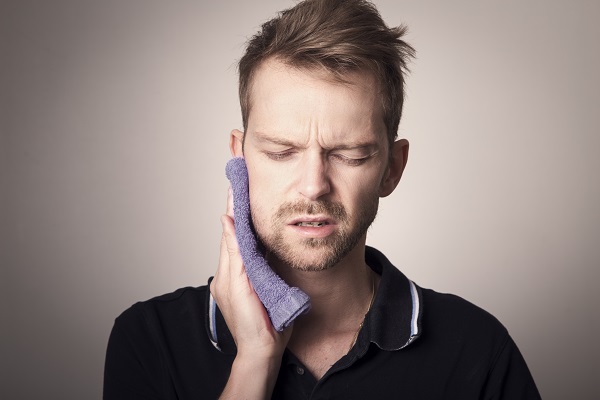FAQs About Visiting an Emergency Dentist

No one plans a visit to the emergency dentist. Dental emergencies happen without warning and can immediately disrupt your routine. Symptoms, including the pain and swelling, can make it hard, if not impossible, to concentrate at work, enjoy moments with loved ones or eat properly. As such, seeking treatment for the dental emergency as quickly as possible is important, before the situation worsens. The following are frequently asked questions about emergency dental visits.
What is a dental emergency?
Injuries to the face or mouth require a prompt visit to the emergency dentist. Falls, sports collisions and car crashes are all situations that can affect the mouth and cause broken teeth, knocked-out or loose teeth and other internal damages to the mouth. Another situation that requires emergency dental care is a sharp tooth or gum pain that starts abruptly and will not stop. Anyone in persistent pain should not wait longer to get relief. Visit the dentist's office for quick relief, accurate diagnosis and treatment.
What are the steps to take to relieve pain before the emergency dental appointment?
If someone is experiencing pain due to a sports injury, accident or toothache, applying a cold compress on the chin or cheek can provide relief and reduce swelling. The cold compress should remain in place for at least 15 minutes before it comes off. It should be applied again after a few minutes.
Rinse the mouth with warm water to remove blood in the mouth. If bleeding persists or there is a visible wound, immediate dental care from the emergency dentist is necessary. If the injury knocks a tooth loose, they should be held in place until the appointment. The patient must also avoid eating solid or hard foods that can dislodge or break the teeth. If a tooth falls out, store it in a glass of milk or warm water and visit the dentist immediately.
Applying a topical pain reliever to the gums may relieve toothache. Over-the-counter pain meds can also help. However, patients must remember to visit the dentist (even if the pain becomes tolerable) to treat the main cause of the symptoms
How can the emergency dentist help?
Prompt appointment with the dentist can alleviate pain, stop further damage and allow patients to get the best treatment options to restore oral health. When there is no visible injury causing the pain, the dentist may need to perform a comprehensive exam, including X-rays to detect the problem. The longer the wait, the higher the risk of worsening the problem, as well as increasing the pain that one will have to endure.
Will the treatment hurt?
Some people deal with dental anxiety, so they might shy away from treatment even when in pain. Rest assured that the emergency dentist will take measures to keep the patient comfortable during potentially uncomfortable procedures such as tooth extractions or root canals. Failure to get treatment on time will only make things worse, eventually requiring a more extensive dental procedure.
Final note
A prompt visit to the emergency dentist is important if you have a dental emergency. This dental professional is always ready to help you stop the discomfort and restore oral health.
Request an appointment here: https://dragonflydentalportcharlotte.com or call Dragonfly Dental of Port Charlotte at (941) 676-9225 for an appointment in our Port Charlotte office.
Check out what others are saying about our services on Google: Read our Google reviews.
Related Posts
Cosmetic dentists take pride in enhancing the appearance of their patients' smiles. Since everyone has different treatment goals, finding the right dentist can take some time and research. Asking yourself a few simple questions can help you figure out what you need in a cosmetic dentist, streamlining your search.While all general dentists complete training to…
Aging affects every part of the body, including the look and health of the teeth. A cosmetic dentist can address the common dental challenges that come with aging teeth and gums. As people get older, their teeth may become discolored, worn, chipped, or misaligned. Gums can recede, become sensitive, or show signs of disease. Cosmetic…
A cosmetic dentist specializes in enhancing the appearance of the teeth, gums, and smile through various treatments designed to improve both function and aesthetics. While general dentists provide essential care to maintain oral health, a cosmetic dentist focuses on cosmetic procedures that can transform the look of your smile. Visiting this professional offers several key…
A cosmetic dentist can be any dentist who helps improve the look of the smile through treatments like whitening, veneers, and clear aligners. Many patients want to know whether they should see a cosmetic dentist or an orthodontist when planning to straighten their teeth. The answer depends on the type of dental issue and the…
